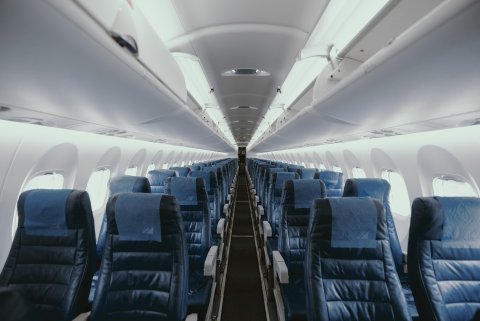EFT Takes Flight with an International Airline
In 2018, U.S. and foreign airlines carried more than one billion passengers, according to the Bureau of Transportation Statistics. The Federal Aviation Administration (FAA) handles 44,000 daily flights, totaling 16,100,000 flights a year. That’s a whole lot of flying! What’s even more outstanding is that the International Air Transport Association (IATA) predicts air travel will double by the year 2037.
Over the years, there has been an increase in demand that ultimately shifted the way airlines operate from a business level. Airlines are no longer “just a plane ride.” Instead, airlines have become a conglomerate of retail, manufacturing, and logistics. The robust IT departments of an airline need to coordinate staff, customers, and routes, plus the scheduling of airtime between other airlines.
The demand in air travel has subsequently led to airline companies focusing more on the customer experience—investing their IT budgets in mobile apps to make it easier for customers to check-in, reserve tickets, and so on. This leaves other segments of the IT department to be ignored, and thus not evolving with the ever-changing technological environment.
Consequences of Outdated IT Environments
As CTOs and CIOs of airlines focus on wooing the customer by releasing new user-friendly apps and tools, neglecting backend systems can be a recipe for disaster. Technology glitches can ground thousands of flights leaving customers stranded. A new report published in June by the U.S. Government Accountability Office, identified 34 IT outages from 2015-2017, affecting 11 airlines. These outages led to customers being unable to check-in and/or scan boarding passes and baggage, experiencing long wait times for boarding, and a slew of flight delays and cancellations.
What does this tell us?
An airline’s IT operations and investment decisions, while they are all internal, greatly affect external parties when there is a failure or outage. Delayed and canceled flights cause out-of-pocket expenses for customers and travel agencies that have to pay for alternative travel, food, and accommodations. Through social media, customers are quick to complain about the inconvenience you have caused them. Not only will IT glitches cost thousands, even millions of dollars, it will also lead to a tarnished brand reputation.
Taking Flight with Globalscape EFT
It is no doubt that airlines have a complex IT environment. The IT department alone may have hundreds of employees, or more, operating multiple applications, contracts, and technology partners. The IT stack comes with different verticals, from commercial to operational to back-office. Operational resilience requires all organizations, including the airline industry, to stay current with the latest technology to not only stay relevant but also to prevent the loss of revenue when their competitors pass them up.
At Globalscape we understand that your bottom line is important to your investors, and in the services industry, reputation is everything. Let us help you update your outdated systems, eliminate home-grown network “patches,” and help you create a more efficient network architecture. Your investors will appreciate the return on their investments, and your customers will appreciate your efficiency and safety concerns.
In a recent use case, Globalscape engineers assisted an international airline with an Active-Passive cluster configuration to exchange data with a backend Inter-Organizational Middleware System (IOMS) for a simple, powerful, and affordable SFTP solution. Read more here.
For more information on how EFT can help your organization, check out our product suite.
